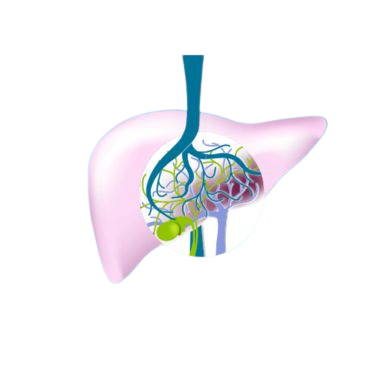Liver Function Blood Test
$79.00
Liver health blood tests, also known as liver function tests, are a group of blood tests used to assess the health and function of the liver. These tests help evaluate liver enzymes, proteins, and other substances in the blood that provide information about liver function and potential liver damage.
Analytes in this test: 5 Total Analytes:- Alkaline Phosphatase (ALP), ALT (Alanine Aminotransferase), AST (Aspartate Aminotransferase), Bilirubin-Total, Protein-Total.
Description
About the Test
Liver health refers to the proper functioning of the liver, a vital organ that plays a crucial role in the body’s metabolism, detoxification, and digestion. Maintaining a healthy liver is essential for overall health and well-being.
If you have a family history of liver disease, are at risk for liver disease due to other health conditions, or have symptoms such as fatigue, abdominal pain, yellowing of the skin or eyes (jaundice), dark urine, or itching, it is important to speak with a healthcare professional. Early detection and treatment of liver disease can help prevent or slow progression and minimize the risk of serious complications.
Overview of Liver Health
Liver health refers to the proper functioning of the liver, a vital organ that plays a crucial role in the body’s metabolism, detoxification, and digestion. Maintaining a healthy liver is essential for overall health and well-being.
Some ways to promote and support liver health include:
- Maintaining a healthy diet that is low in fat and high in fiber
- Limiting alcohol consumption
- Avoiding exposure to toxins, such as chemicals and certain medications
- Maintaining a healthy weight
- Exercise regularly
- Avoiding the use of illegal drugs
If you have a family history of liver disease, are at risk for liver disease due to other health conditions, or have symptoms such as fatigue, abdominal pain, yellowing of the skin or eyes (jaundice), dark urine, or itching, it is important to speak with a healthcare professional. Early detection and treatment of liver disease can help prevent or slow progression and minimize the risk of serious complications.
Analytes Tested in the Liver Health Blood Test
5 Analytes
- Alkaline Phosphatase (ALP)
- ALT (Alanine Aminotransferase)
- AST (Aspartate Aminotransferase)
- Bilirubin Total
- Protein, Total
Alkaline Phosphatase (ALP)
Alkaline phosphatase (ALP) is an enzyme that catalyzes the hydrolysis of phosphates from a variety of organic compounds. It is found in many tissues and organs, including the liver, bone, and intestines, and its activity is commonly used as a marker for various medical conditions, including liver and bone disease. Elevated levels of ALP in the blood can indicate a number of health issues and further tests are usually needed to determine the underlying cause.
ALT (Alanine Aminotransferase)
ALT (Alanine Aminotransferase) is an enzyme found mainly in liver cells. Elevated levels of ALT in the blood can indicate liver damage, such as from viral hepatitis, alcohol use, or certain medications. Measuring ALT levels is a common way to screen for liver problems and monitor their progression. However, elevated ALT levels do not always indicate liver disease and other tests such as ultrasound, biopsy, or further blood tests are often needed to diagnose the underlying cause.
AST (Aspartate Aminotransferase)
AST (Aspartate Aminotransferase) is an enzyme found in various tissues throughout the body, including the liver, heart, and muscles. Elevated levels of AST in the blood can indicate damage to these tissues, particularly the liver, and is often used as a marker for liver disease. Elevated AST levels can also be seen in conditions such as heart attack, muscle damage, or liver inflammation caused by viral hepatitis, alcohol use, or certain medications. Measuring AST levels is a common way to screen for liver and heart problems, but further tests are often needed to diagnose the underlying cause.
Bilirubin Total
Bilirubin Total is a blood test that measures the total amount of bilirubin in the blood. Bilirubin is a yellow pigment that is produced when red blood cells break down and is normally removed from the body by the liver. Elevated levels of bilirubin can indicate a number of liver or blood disorders, including liver disease, anemia, or increased red blood cell breakdown. Low levels of bilirubin are not usually a concern, but in some cases can indicate problems with bilirubin metabolism or removal. Measuring bilirubin total is a common way to screen for liver and blood problems and to monitor the effectiveness of treatment.
Protein, Total
Total protein is a laboratory test that measures the total amount of protein present in the blood. It is a broad test that reflects the overall protein status of the body and can provide information about various health conditions. The test results are typically reported in grams per deciliter (g/dL).
The normal range for total protein may vary slightly depending on the laboratory, but generally falls between 6.0 to 8.5 g/dL. Abnormal results may indicate a variety of conditions, including malnutrition, liver or kidney disease, inflammation, and certain infections. A healthcare professional will interpret the results in the context of a person’s overall health and medical history.
Specimen Requirements
SST tube of blood, serum
Turn Around Time
5 to 24 hours
Price For Test
Price: $79







